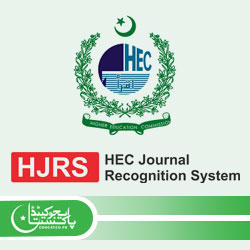LANGUAGE SHIFT: JOURNEY OF THIRD GENERATION SINDHI AND GUJARATI SPEAKERS IN KARACHI
DOI:
https://doi.org/10.58800/bujhss.v2i1.5Keywords:
Mother tongue, Language Attitude; Language Shift, Sindhi, GujaratiAbstract
Regional languages are the main pillars of any state, they denote the cultural and linguistic diversity. (David, 2001a). Pakistan is a multilingual state with almost 74 languages spoken in the country (Siddiqui, 2019), yet major emphasis has been laid on national and international language and little importance is given to the minority languages; which are distinct in every province. Hence, Urdu has acquired the status of dominant language; as most of the regional language speakers are acquiring the language for communicative competence (Ali, 2015). However, these language attitudes and language changes are more frequent in a multilingual language contact situation; mostly in the urban areas (David, 1998). Therefore, the present study explores the language attitudes and preference of third generation Sindhi and Gujarati speakers living in urban environment i.e. Karachi. So, by comparative analysis, this study tries to figure out the possible reasons for the linguistic choices and factors for language shift among minority language speakers. The research site selected for this study is a public sector university and the data for the study was collected using purposive sampling; initially twenty participants (ten each) were selected, i.e. Sindhi and Gujarati male and female participants, who took part in this study by filling out the sociolinguistic profile form. In order to observe language shift at the individual level, in-depth, semi-structured interviews from were taken from eight participants using critical sampling. The recorded data was transcribed and analyzed qualitatively to identify major themes for the study. Thus, this paper offers a comprehensive analysis of such a situation where young Sindhi and Gujarati speakers are shifting towards the mainstream Urdu and English language. Consequently, the vitality of Sindhi and Gujarati language has been challenged by the native speakers. In a few cases, it was observed that language loss may occur at any stage. These findings provide an opportunity to the language policy makers to redesign the policy of mother tongue education and promote home language. In addition, this research also draws attention of the Sindhi and Gujarati speakers to take immediate measures to transform and maintain their language in an urban environment. Therefore, steps should be taken by the minority language speakers and researchers to promote and preserve their historical language.






